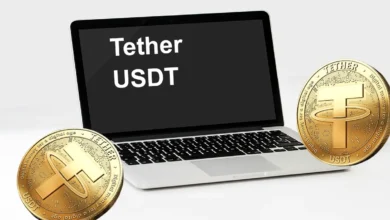Understanding the Basics: Money Market Accounts vs. Money Market Funds

In the ever-evolving landscape of personal finance, safety and security are paramount when it comes to choosing where to place your hard-earned money. As interest rates fluctuate and economic conditions shift, many investors seek reliable options that not only offer better returns than traditional savings accounts but also come with a lower risk profile. Among these options are Money Market Accounts (MMAs) and Money Market Funds (MMFs). While they may sound similar, understanding the distinctions between them is crucial for anyone looking to safeguard their investments. In this blog post, we will explore the safety of both MMAs and MMFs, clarify their differences, and help you make informed financial decisions.
Understanding Money Market Accounts
Money Market Accounts are deposit accounts offered by banks and credit unions that typically provide higher interest rates compared to standard savings accounts. They are considered a safe investment because they are insured by the Federal Deposit Insurance Corporation (FDIC) in the United States, up to $250,000 per depositor, per institution. This insurance means that even if the bank fails, your funds are protected within those limits.
MMAs combine features of both checking and savings accounts. They often allow limited check-writing capabilities and debit card access while offering competitive interest rates. This makes them an appealing option for those who want liquidity without sacrificing returns. The risk associated with MMAs is minimal; however, account holders should be aware of potential fees or withdrawal limits that could impact their overall return.
Benefits of Money Market Accounts
One of the most attractive aspects of money market accounts is their higher interest rates compared to standard checking or savings accounts. This makes MMAs an appealing option for those looking to save for significant expenses such as vacations, home improvements, or emergencies. By earning a competitive interest rate on your deposits, you can make your money work harder for you.
Additionally, many MMAs offer tiered interest rates based on your account balance. This means that maintaining a higher balance can yield even greater returns on your savings. For instance, an account holder with a balance exceeding $50,000 may earn a higher interest rate than someone with a balance of $10,000.
FDIC Insurance: A Safety Net for Depositors
One of the primary reasons why money market accounts are considered safe investments is the insurance provided by the Federal Deposit Insurance Corporation (FDIC). Under this program, deposits in federally insured banks are protected up to $250,000 per depositor, per bank. This means that if your bank were to fail, your funds would be safeguarded within these limits.
This insurance not only provides peace of mind but also encourages depositors to feel confident in their investment choices. Whether you have a small sum or a more substantial amount invested in an MMA, knowing that your deposits are insured can alleviate concerns about potential losses due to bank failures.
Low-Risk Investments: The Foundation of Stability
Another factor contributing to the safety of money market accounts is their low-risk investment nature. Banks typically use the funds deposited in these accounts to invest in stable and liquid short-term securities. These may include:
- Certificates of Deposit (CDs): Time deposits with fixed interest rates and specified maturity dates.
- Government Securities: Bonds or other instruments issued by government entities considered low-risk.
- Commercial Paper: Unsecured promissory notes issued by corporations with high credit ratings.
These types of investments are designed to minimize risk while providing returns. Once these securities mature, banks share the earnings with account holders through competitive interest rates on their MMAs. This structure not only ensures that your money is working for you but also reinforces the overall stability associated with these accounts.
The Accessibility Factor
Besides safety and investment strategy, another compelling aspect of money market accounts is their accessibility. Unlike other long-term investment vehicles that may lock up funds for extended periods, MMAs allow you to withdraw cash or transfer funds easily without significant penalties. This combination of high liquidity and competitive interest rates makes them an attractive option for individuals who prioritize both security and accessibility.
Key Considerations
While money market accounts come with numerous benefits, there are important considerations to keep in mind before opening one. Most financial institutions require a minimum deposit to open an MMA—often ranging from $1,000 to $25,000—and some may also mandate that account holders maintain this minimum balance each month. Falling below the required amount could result in monthly fees that diminish any interest earnings.
Moreover, although MMAs offer convenience through check-writing capabilities and debit card transactions, it’s essential to remember the withdrawal limitations set by federal regulations. Exceeding these limits can lead to additional charges or even conversion of the account into a regular checking account.
Exploring Money Market Funds
On the other hand, Money Market Funds are a type of mutual fund that invests in short-term, low-risk securities such as Treasury bills and commercial paper. Unlike MMAs, MMFs are not insured by the FDIC; instead, they fall under the regulation of the Securities and Exchange Commission (SEC). While they aim to maintain a stable share price—often at $1 per share—their value can fluctuate based on market conditions.
MMFs offer investors potentially higher yields than traditional savings accounts but come with slightly more risk due to their exposure to market fluctuations. Historically, money market funds have been considered safe investments; however, there have been instances during economic downturns when some funds experienced losses. Thus, while MMFs can be a suitable option for conservative investors seeking higher returns than traditional banking products can offer, they do carry an inherent risk that should not be overlooked.
How Do Money Market Funds Work?
Investors participate in money market funds by purchasing shares or units through banks, mutual fund companies, or brokerage houses. The value of these shares typically remains stable at $1 per share due to the nature of the securities held within the fund. Dividends are paid out to investors based on prevailing short-term interest rates, providing an attractive yield compared to traditional savings accounts.
It’s important to note that unlike MMAs where you can easily access your cash through withdrawals or checks, redeeming shares from a money market fund requires submitting a request. This process may take some time, so it’s essential for investors to plan their liquidity needs accordingly.
Benefits of Investing in Money Market Funds
- Liquidity: Money market funds are designed for short-term investments and provide investors with relatively easy access to their funds when needed. Although redemption requests are required, many funds allow for quick transactions.
- Safety: MMFs generally invest in highly liquid and low-risk instruments. This makes them a safer option compared to other investment vehicles like stocks or bonds during volatile periods.
- Higher Returns: While not risk-free, money market funds typically offer better returns than traditional savings accounts due to their focus on short-term debt instruments with higher yields.
- Diversification: By pooling resources from multiple investors, MMFs provide diversification across various securities which can help mitigate risk.
- Professional Management: Money market funds are managed by experienced professionals who actively monitor the markets and make informed decisions on behalf of investors.
Safety Features of Money Market Funds
One of the key selling points of money market funds is their focus on low-risk assets. By investing primarily in short-term securities from reputable issuers, these funds aim to preserve capital while offering a stable income stream. For conservative investors or those nearing retirement, money market funds present an attractive option due to their relatively safe nature compared to equities or long-term bonds.
However, it’s important to note that while money market funds strive for stability, they are not insured against losses by the Federal Deposit Insurance Corporation (FDIC). This means that unlike a traditional savings account at a bank, which guarantees deposits up to $250,000, there is no safety net if the fund’s value declines.
Understanding Risk Levels
The risk associated with money market funds can vary significantly based on the types of securities they hold. For example:
- Conservative Funds: These typically invest in government-backed securities like Treasury bills or highly-rated CDs. Their risk level is minimal, making them suitable for those prioritizing capital preservation.
- Higher-Risk Funds: Some money market funds may venture into corporate debt or foreign currency CDs. While these investments can offer higher returns due to increased interest rates or favorable currency movements, they also come with added risk during volatile market conditions.
Investors must carefully consider their risk tolerance before choosing a particular money market fund. While higher yields might be tempting, understanding the potential for loss is crucial.
Regulatory Oversight
Money market funds operate under strict guidelines set by the Securities and Exchange Commission (SEC). These regulations are designed to ensure transparency and protect investors from excessive risks. For instance, the SEC mandates that money market funds maintain a stable net asset value (NAV) and restricts their investment choices to minimize credit risk.
Frequently Asked Questions About Money Market Accounts
We will address some frequently asked questions about money market accounts to help you make informed financial decisions.
1 What Is the Safest Kind of Money Market Account?
Safety is a primary concern for many investors, and when it comes to money market accounts, U.S. government money market funds are generally considered the safest option. These funds primarily invest in government securities, especially U.S. Treasurys, which are backed by the full faith and credit of the U.S. government. By focusing on these high-quality securities, these accounts have a lower exposure to default risk compared to other types of money market funds that may invest in corporate debt or other riskier assets.
Choosing a government-backed money market fund can provide peace of mind, especially for those who prioritize capital preservation over higher returns. However, as with any investment, it’s essential to research and understand the specific fund’s composition before making a decision.
2 Can a Money Market Account Lose Money?
One common misconception about money market accounts is that they can lose value like other investments in the stock market. However, this is not the case. A money market account is designed to preserve your principal while providing interest earnings on your deposits. You cannot lose your balance in a money market account under normal circumstances.
That said, there are some caveats to consider. While your principal amount remains intact, you could incur penalty fees if your account balance falls below required minimums or if you exceed withdrawal limits. Therefore, it is crucial to familiarize yourself with your specific account’s terms and conditions to avoid unnecessary fees.
3 How Long Should I Keep Money in a Money Market Fund?
Deciding how long to keep your funds in a money market account depends on your financial situation and goals. Financial experts generally recommend maintaining an amount equivalent to six to twelve months’ worth of living expenses in these accounts. This strategy provides a safety net for unforeseen emergencies or life events—like job loss or medical expenses—where immediate access to cash is necessary.
However, it’s important to recognize that keeping too much cash in a money market fund for an extended period may result in lost purchasing power due to inflation. After reaching the recommended duration for emergency savings, you might consider reallocating excess funds into higher-yielding investments that align with your financial goals.
Are Money Market Funds Right for You?
Choosing whether to invest in a money market fund depends largely on your financial goals and needs. If you have idle cash that you want to earn interest on without exposing yourself to significant risk or volatility, an MMF might be suitable for you. They serve as an excellent parking place for your cash while you decide where to allocate your investment dollars next.
However, it’s crucial to understand that while MMFs are generally considered safe investments, they are not insured by the Federal Deposit Insurance Corporation (FDIC) like bank deposits are. Therefore, potential investors should carefully evaluate their risk tolerance before committing funds.
Comparing Safety: MMAs vs. MMFs
When evaluating the safety of Money Market Accounts versus Money Market Funds, it’s essential to consider your financial goals and risk tolerance.
- Insurance: The most significant difference lies in insurance coverage—MMAs provide FDIC insurance up to $250,000, ensuring your principal is protected.
- Liquidity: Both options offer liquidity; however, MMAs typically allow for more flexible access to funds through checks or debit cards.
- Returns: While both can provide competitive interest rates or yields compared to traditional savings vehicles, MMFs may offer slightly higher returns due to their investment nature but come with increased risk.
In summary, if capital preservation is your primary concern and you prefer assured returns without market volatility, a Money Market Account may be your best bet. Conversely, if you’re willing to take on some additional risk for potentially higher yields—and understand that your investment isn’t insured—then a Money Market Fund could fit into your overall investment strategy.
Conclusion
Choosing between Money Market Accounts and Money Market Funds requires careful consideration of various factors including safety, liquidity needs, and investment goals. While both options can serve as valuable components of a diversified financial portfolio aimed at preserving capital while earning interest or yields above traditional savings rates, understanding their differences is essential for making informed decisions.
Before making any financial commitments or changes to your investment strategy, consider consulting with a financial advisor who can provide personalized insights tailored to your unique situation. Best regards, Finance Mate Club





